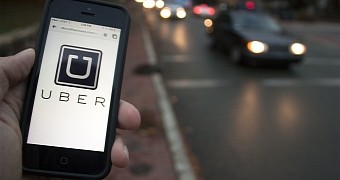Trump’s immigration ban has pushed ridesharing companies Uber and Lyft to compensate drivers, by setting up a fund to help the ACLU fight for the American constitution, while Airbnb is working to cover housing for those locked out of the United States.
It’s been a rough past weekend following the new immigration laws set up by the Trump administration, which sparked protests across the United States and many other countries across the world. One of these protests took place in front of New York’s JFK airport, which the New York Taxi Workers Alliance decided to join by stopping service to and from the airport.
Uber was quick to release a statement, trying to avoid price hikes around the airport, but this initiative didn’t go as planned. Instead, Uber was slammed over Twitter and other social networks for what was seen as the company trying to profit from the immigration crisis sparked by Trump’s new executive order. The #DeleteUber hashtag quickly went viral as people started not only to delete the app from their phones but also to cancel their accounts, posting the evidence on Twitter and vowing to switch to rival Lyft.
“We’re sorry for any confusion about our earlier tweet - it was not meant to break up an strike. We wanted people to know they could use Uber to get to and from JFK at normal prices, especially last night,” Uber tried to amend things in a new statement.
Helping immigrants and the ACLU
Then, on Sunday, the company issued another statement on the immigrant ban, calling it unjust. It also said it would create a $3 million legal defense fund to help drivers with immigration and translation services, since many of its drivers, much like the taxi drivers in New York, for instance, are foreigners.
Furthermore, Uber said they were working on identifying the drivers who were unable to work in the USA anymore due to being locked out of the country. The purpose of this is to compensate them pro bono during the next three months to “help mitigate some of the financial stress and complications with supporting their families and putting food on the table.”
Folks over at Lyft, Uber’s ridesharing rival, have taken some steps towards helping out those in need too, vouching to donate $1 million over the next four years to the ACLU to defend the country’s constitution. This indicates that Lyft is sensing just what everyone else is - that this is just the beginning and Trump’s presidency will only bring trouble such as this new regulation that has been dubbed as the Muslim Ban on social media. While the Trump administration denies it has anything to do with religion, it is pretty hard to believe since the seven countries on the ban list are predominantly Muslim.
Airbnb joins the fight
The online marketplace that created a massive homestay network to help people find short-term rents across the world has made a move toward helping those in need too.
Since there are now countless refugees, students, green card holders and more stuck in American airports, Airbnb has vouched to offer housing to those affected.
“Airbnb is providing free housing to refugees and anyone not allowed in the US. Stayed tuned for more, contact me if urgent need for housing,” wrote Airbnb CEO Brian Chesky over Twitter.
The company plans to use its existing disaster response program to cover this issue. The program asks hosts to offer housing to people left with no home of their own due to natural disasters or aid workers.
People who were left stranded by Trump’s executive order can send Airbnb a request to see what can be done about their accommodations until this whole situation goes one way or the other.

 14 DAY TRIAL //
14 DAY TRIAL //